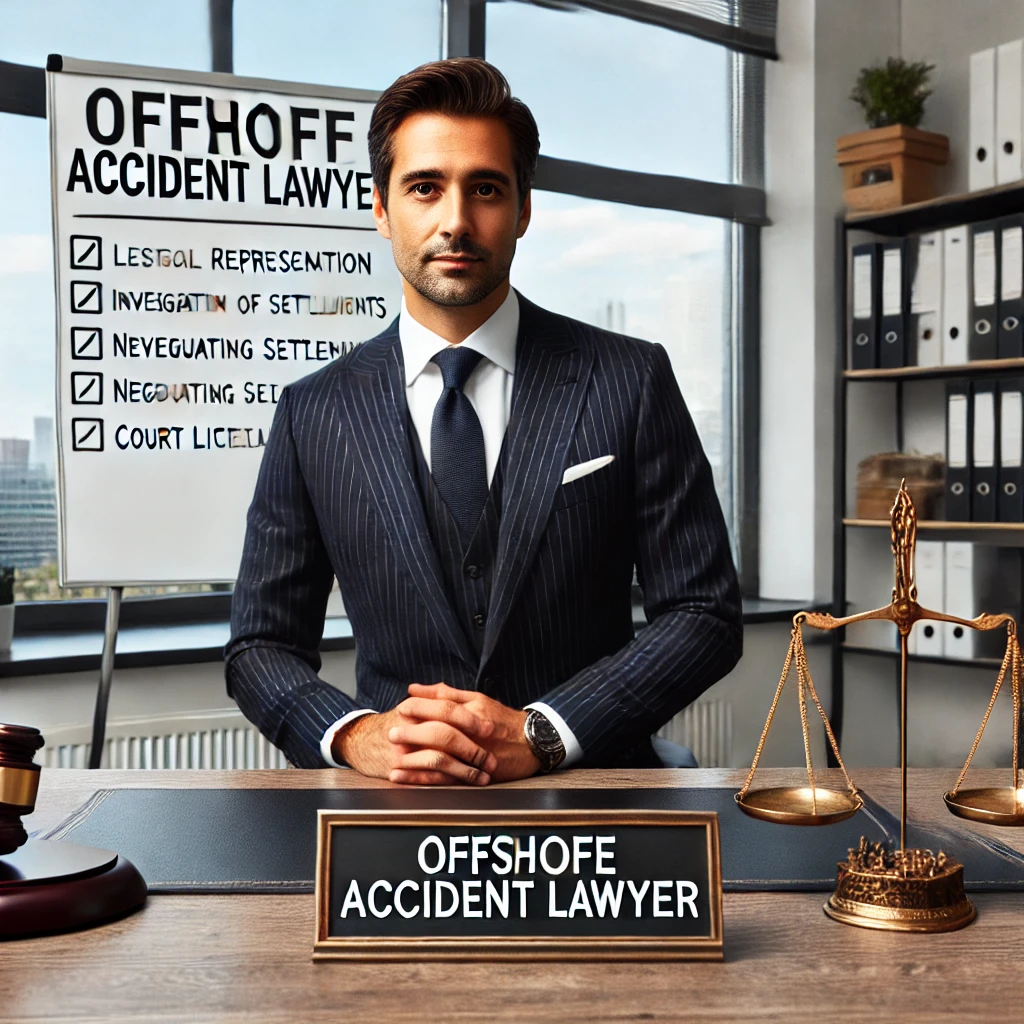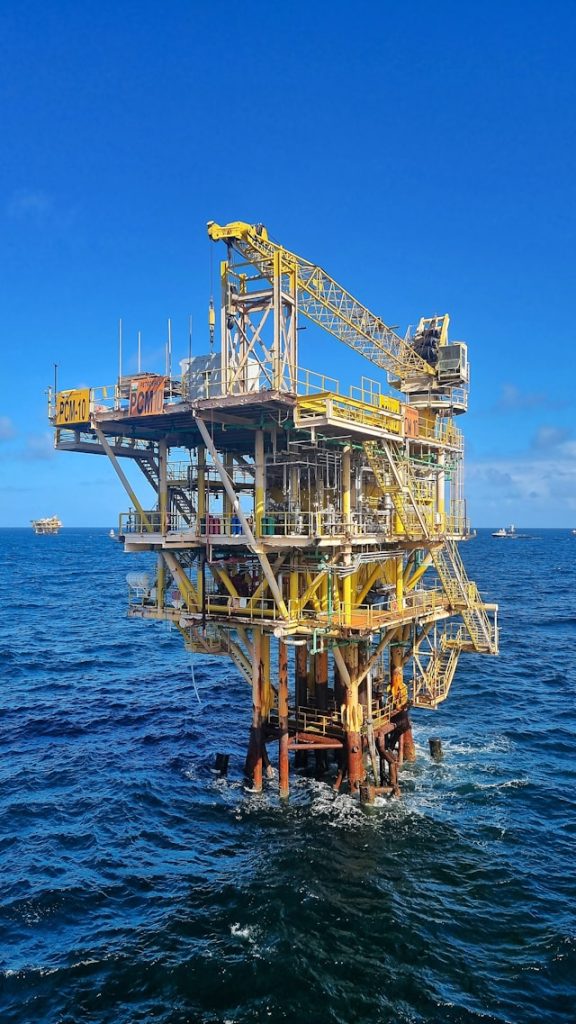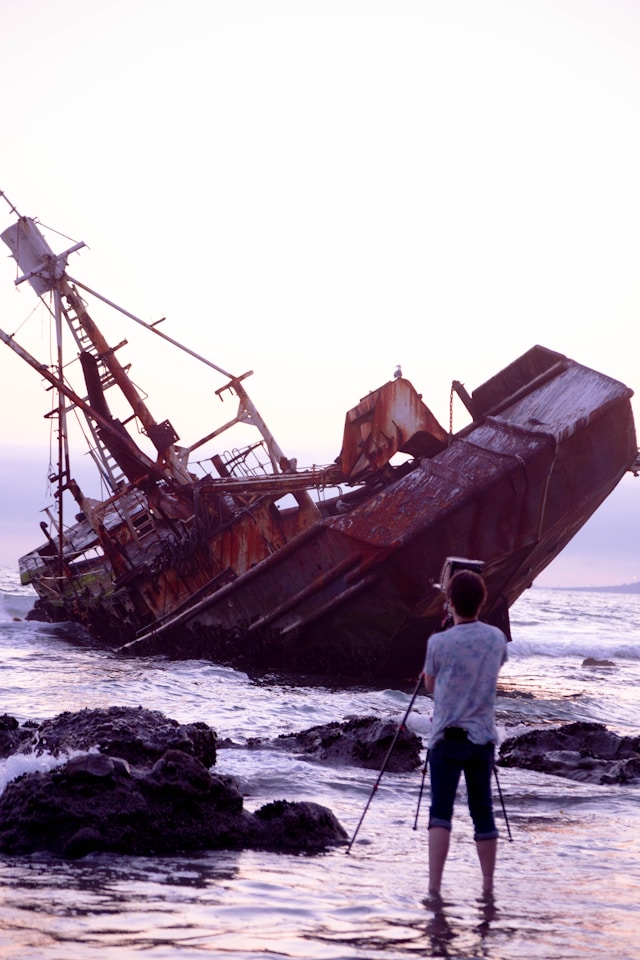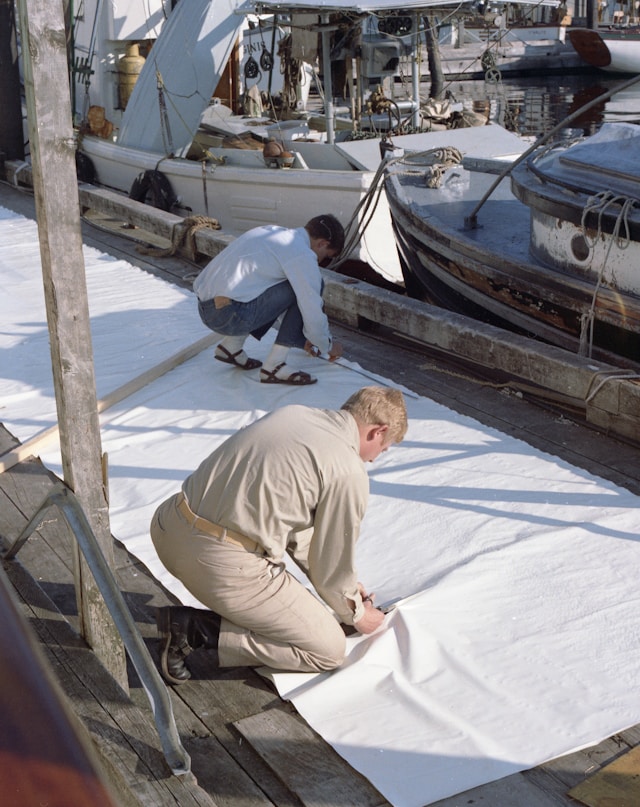Have you ever wondered what happens when disaster strikes miles away from shore? Offshore accidents can be devastating, leaving workers with life-altering injuries and families struggling to make ends meet. If you or a loved one has experienced such a tragedy, an offshore accident lawyer might be your lifeline to justice and financial recovery.
“The sea is dangerous and its storms terrible, but these obstacles have never been sufficient reason to remain ashore.” — Ferdinand Magelot
I’ve spent years helping maritime workers navigate the complex legal waters following offshore accidents. Today, I’m sharing everything you need to know about finding the right legal representation and securing the compensation you deserve.
Key Takeaways
- Offshore accidents fall under specialized maritime laws like the Jones Act and the Longshore and Harbor Workers’ Compensation Act
- You typically have a limited timeframe to file claims following an offshore accident
- Specialized offshore accident lawyers understand the unique challenges of maritime injury cases
- Multiple parties may be liable for your injuries, including employers, vessel owners, and equipment manufacturers
- Compensation can cover medical expenses, lost wages, pain and suffering, and more
Understanding Offshore Accidents: When the Unexpected Happens at Sea

The offshore industry is inherently dangerous. Oil rigs, drilling platforms, and vessels operate in harsh environments where a single mistake can lead to catastrophic consequences. According to the Bureau of Safety and Environmental Enforcement, hundreds of offshore incidents occur annually, ranging from minor injuries to fatal accidents.
Common Types of Offshore Accidents
Working offshore presents unique hazards that simply don’t exist in land-based occupations. Some of the most frequent accidents include:
Slip and Falls
The combination of wet surfaces, moving platforms, and adverse weather conditions makes slip and fall accidents extremely common offshore. These incidents can result in anything from minor bruises to severe spinal injuries.
Explosions and Fires
Oil and gas are highly flammable. When proper safety protocols aren’t followed, devastating explosions and fires can occur, causing severe burns, smoke inhalation injuries, and even fatalities.
Equipment Malfunctions
Cranes, winches, drilling equipment, and other heavy machinery are essential to offshore operations. When this equipment fails, workers can suffer crushing injuries, amputations, or worse.
Exposure to Toxic Substances
Offshore workers frequently handle hazardous chemicals and materials. Exposure to these substances can lead to respiratory problems, chemical burns, and long-term health complications like cancer.
Vessel Collisions
When supply vessels, crew boats, or other watercraft collide with offshore structures or other vessels, the impact can cause serious injuries to everyone on board.
Why You Need a Specialized Offshore Accident Lawyer

You might be thinking, “Can’t any personal injury lawyer handle my case?” The answer is a resounding no, and here’s why:
Maritime Law Is Different
Offshore accidents don’t fall under typical personal injury law. Instead, they’re governed by complex maritime laws and regulations that date back centuries. A lawyer without maritime experience might miss crucial legal strategies that could significantly impact your case.
“Maritime law is not just another area of practice—it’s a completely different legal system with its own rules, precedents, and procedures.”
Understanding of Industry Operations
An effective offshore accident lawyer doesn’t just know the law—they understand the industry. They know how oil rigs operate, the roles of different crew members, and the safety standards that should be in place.
Networks of Maritime Experts
Specialized offshore accident attorneys have connections with maritime experts who can provide crucial testimony about industry standards, equipment operations, and more. These expert witnesses can make or break your case.
Maritime Laws That Govern Offshore Accident Claims
When you’re injured offshore, several specialized laws might apply to your situation. Understanding which laws cover your case is the first step toward securing proper compensation.
The Jones Act
The Jones Act (formally known as the Merchant Marine Act of 1920) is perhaps the most important law for injured offshore workers. It allows seamen who are injured due to employer negligence to sue for damages, including:
- Past and future medical expenses
- Lost earnings and diminished earning capacity
- Pain and suffering
- Mental anguish
- Physical disfigurement
Unlike workers’ compensation, which limits recovery to specific benefits, the Jones Act allows for full compensation of all damages.
Longshore and Harbor Workers’ Compensation Act (LHWCA)

The LHWCA provides coverage for maritime workers who aren’t considered seamen. This typically includes dock workers, harbor construction workers, and some offshore platform workers. Benefits include:
- Medical care coverage
- Temporary or permanent disability payments
- Vocational rehabilitation services
- Survivor benefits
Death on the High Seas Act (DOHSA)
When maritime accidents result in fatalities, the Death on the High Seas Act allows family members to recover pecuniary (financial) losses. This act applies to deaths occurring beyond three nautical miles from U.S. shores.
General Maritime Law
In addition to statutory laws, general maritime law—developed through centuries of court decisions—may apply to your case. This body of law includes important concepts like maintenance and cure, which requires employers to pay for an injured seaman’s medical treatment and basic living expenses.
Common Causes of Offshore Accidents
Understanding what causes offshore accidents can help establish liability in your case.
Inadequate Training
Many offshore accidents occur because workers haven’t received proper training. Companies sometimes cut corners to save money, putting inexperienced personnel in dangerous situations.
Equipment Failure
When equipment isn’t properly maintained or is defective from the start, catastrophic failures can occur. Manufacturers, maintenance companies, and operators may all share liability in these cases.
Unsafe Working Conditions
Slippery decks, inadequate lighting, improper storage of materials, and other hazardous conditions frequently contribute to offshore injuries.
Negligence
Human error remains a leading cause of offshore accidents. Whether it’s a supervisor pushing workers beyond safe limits or a coworker making a careless mistake, negligence often plays a central role in maritime injuries.
Weather Conditions
The unpredictable nature of the sea means that severe weather can develop quickly. When companies fail to adequately prepare for or respond to dangerous weather conditions, workers pay the price.
Who Can Be Held Liable for Offshore Accidents?
Determining liability is often complicated in offshore accident cases. Multiple parties may share responsibility for your injuries:
Employers
Under the Jones Act, employers can be held liable for even the slightest negligence contributing to a seaman’s injury.
Vessel Owners
If unseaworthiness (a vessel’s inability to provide reasonably safe working conditions) contributed to your accident, the vessel owner may be liable regardless of whether they were negligent.
Equipment Manufacturers
When defective equipment causes or contributes to an accident, the manufacturer can be held responsible through product liability claims.
Third-Party Contractors
Many different companies operate on offshore installations. If a contractor from another company caused your injury, they might be liable.
Oil and Gas Companies
The companies that own offshore installations often set operational parameters and safety protocols. When these standards are inadequate, the companies can share liability for resulting injuries.
Steps to Take After an Offshore Accident
What you do immediately following an offshore accident can significantly impact your ability to recover compensation:
Seek Medical Attention
Your health comes first. Even if you think your injuries are minor, get a thorough medical examination. Some serious conditions, like internal bleeding or traumatic brain injuries, may not show immediate symptoms.
Report the Accident
Formally report the accident to your supervisor or employer as soon as possible. This creates an official record of the incident.
Document Everything
Take photos of your injuries and the accident scene if possible. Write down what happened while the details are fresh in your mind. Keep records of all medical treatments and expenses.
Avoid Signing Documents
Don’t sign any documents from your employer or their insurance company without legal review. These often contain language that limits your right to full compensation.
Contact an Offshore Accident Lawyer
Consult with a specialized maritime attorney as soon as possible. The sooner they get involved, the better they can protect your rights and preserve evidence.
How to Choose the Right Offshore Accident Lawyer

Finding the right legal representation can make all the difference in your case outcome. Here’s what to look for:
Experience with Maritime Law
Choose an attorney with extensive experience specifically in maritime law and offshore accident cases. Ask about their success record with cases similar to yours.
Resources to Handle Complex Cases
Offshore accident cases often require significant resources for investigation, expert witnesses, and litigation. Ensure your attorney has the financial capacity to properly pursue your claim.
Understanding of the Offshore Industry
Your lawyer should understand offshore operations, industry terminology, and safety standards. This knowledge is crucial for effectively proving negligence.
Clear Communication
You deserve an attorney who explains complex legal concepts in terms you can understand and keeps you informed throughout the process.
Contingency Fee Structure
Most reputable offshore accident lawyers work on a contingency basis, meaning they only get paid if you win. This arrangement ensures your interests are aligned.
Compensation Available for Offshore Accident Victims
A successful offshore injury claim can provide various forms of compensation:
Medical Expenses
Coverage for all accident-related medical costs, including emergency treatment, hospitalization, surgeries, medications, physical therapy, and future medical needs.
Lost Wages
Compensation for income lost while recovering from your injuries, as well as diminished earning capacity if you can’t return to your previous occupation.
Pain and Suffering
Monetary damages for physical pain and emotional distress resulting from your injuries.
Maintenance and Cure
Under general maritime law, seamen are entitled to maintenance (daily living expenses) and cure (medical treatment) until they reach maximum medical improvement.
Punitive Damages
In cases involving willful negligence or misconduct, courts may award additional punitive damages to punish the responsible party.
Time Limits for Filing Offshore Accident Claims
Don’t wait too long to pursue your claim. Various statutes of limitations apply to maritime cases:
Jones Act Claims
Generally, you have three years from the date of injury to file a Jones Act claim. However, contracts sometimes shorten this period.
LHWCA Claims
You must report your injury to your employer within 30 days and file a claim within one year.
DOHSA Claims
Claims under the Death on the High Seas Act must typically be filed within three years of the death.
General Maritime Claims
Most general maritime law claims have a three-year statute of limitations, but this can vary based on specific circumstances.
Common Challenges in Offshore Accident Cases
Pursuing compensation for offshore injuries isn’t always straightforward. Be prepared for these potential obstacles:
Employer Pressure
Companies often pressure injured workers to return to work quickly or accept minimal compensation. Your lawyer can shield you from these tactics.
Jurisdictional Issues
Determining which laws apply can be complex, especially for accidents that occur in international waters or involve foreign vessels.
Causation Disputes
Employers and insurance companies frequently argue that pre-existing conditions or non-work activities caused your injuries rather than the offshore accident.
Multiple Liable Parties
When several entities share responsibility, determining the percentage of fault attributed to each can be challenging.
Recent Developments in Offshore Accident Law
The legal landscape for offshore injuries continues to evolve:
Enhanced Safety Regulations
Following major disasters like the Deepwater Horizon explosion, regulatory agencies have implemented stricter safety requirements for offshore operations.
Expanded Liability
Courts have increasingly recognized the responsibility of oil companies and other contracting entities for maintaining safe offshore environments.
Remote Work Considerations
As technology enables more remote operations offshore, new questions arise about liability when accidents involve both onshore and offshore components.
Preventing Offshore Accidents: Industry Best Practices
While legal remedies are essential after an accident, prevention remains the best approach:
Comprehensive Training Programs
Thorough training on equipment operation, emergency procedures, and safety protocols can significantly reduce accident rates.
Regular Equipment Maintenance
Scheduled inspections and maintenance of all equipment prevent mechanical failures that lead to injuries.
Strict Safety Protocols
Clear safety guidelines, consistently enforced, create a culture where precautions become second nature.
Appropriate Staffing Levels
Ensuring adequate crew numbers prevents fatigue and overwork that often contribute to accidents.
Weather Monitoring Systems
Advanced warning systems help operators prepare for or avoid dangerous weather conditions.
Recap: Navigating the Path to Recovery
Offshore accidents can devastate lives, but with proper legal representation, victims can secure the compensation needed to rebuild. Remember these essential points:
- Specialized maritime laws govern offshore accident claims
- Time limits for filing claims are strict and vary by legal framework
- Multiple parties may share liability for your injuries
- Documentation and prompt medical attention strengthen your case
- Choosing an experienced offshore accident lawyer significantly impacts your outcome
Frequently Asked Questions
How do I know if I qualify as a seaman under the Jones Act?
To qualify as a seaman under the Jones Act, you must spend at least 30% of your work time in service of a vessel in navigation and contribute to the vessel’s mission. Your connection to the vessel must be substantial in terms of both duration and nature. Courts examine your specific duties and relationship with the vessel when making this determination.
What’s the difference between the Jones Act and the Longshore and Harbor Workers’ Compensation Act?
The Jones Act applies to seamen who work on vessels, while the LHWCA covers land-based maritime workers like longshoremen, harbor workers, and some offshore platform workers who aren’t considered seamen. Jones Act claims require proving employer negligence and allow for full compensation including pain and suffering, while LHWCA claims operate more like workers’ compensation with scheduled benefits regardless of fault.
Can I still receive compensation if I was partially at fault for my offshore accident?
Yes. Maritime law follows the principle of comparative negligence, meaning you can still recover damages even if you were partly responsible for the accident. However, your compensation may be reduced by your percentage of fault. For example, if you’re found 20% responsible for the accident, your award would be reduced by 20%.
What should I do if my employer offers a settlement after my offshore accident?
Don’t accept any settlement offer without consulting an offshore accident lawyer first. Initial offers are typically much lower than what your case is worth. A specialized attorney can evaluate the offer against your total damages—including future medical expenses and lost earnings—to determine if it’s fair. Remember that accepting a settlement usually means giving up your right to pursue additional compensation later.
How long will my offshore accident case take to resolve?
The timeline for offshore accident cases varies significantly depending on factors like case complexity, severity of injuries, number of liable parties, and whether the case settles or goes to trial. Simple cases might settle in months, while complex litigation can take several years to resolve. Your attorney should provide a realistic timeframe based on the specific circumstances of your case.
If you’ve been injured in an offshore accident, don’t navigate these treacherous legal waters alone. The right offshore accident lawyer can make the difference between struggling financially and securing the compensation you need to move forward with your life. Remember that most maritime attorneys offer free initial consultations, so you have nothing to lose by discussing your case with a professional.
The ocean may be unpredictable, but your path to recovery doesn’t have to be. With proper legal guidance, you can focus on healing while your attorney fights for the justice and compensation you deserve.

